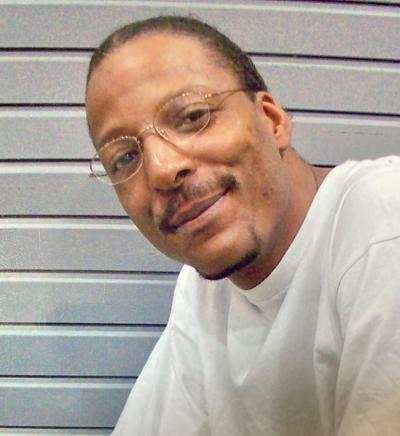The evidence is clear, wrote Texas County Circuit Court Judge William E. Hickle, after a hearing in a habeas corpus case seeking to free a ║³└Ļ╩ėŲĄ man who has spent nearly his entire adult life in Missouri prisons.
ŌĆ£Coupled with the evidence in the record that Petitioner had an alibi, this Court does not believe that any jury would now convict Christopher Dunn under these facts,ŌĆØ Hickle wrote.
So why is Dunn still in prison? Because in Missouri, it takes more than innocence to be released from prison after a wrongful conviction.
ŌĆ£I feel like ,ŌĆØ Dunn, now 49, said in a phone interview from prison.
Dunn was convicted in 1991 of murdering Ricco Rogers in the Wells-Goodfellow neighborhood in 1990, when Dunn was 18. He was convicted solely on the testimony of two boys who were on the porch when Rogers was shot and killed. One of those boys believed Dunn was in a rival street gang, according to court documents. Dunn, who says he was never in a gang, has from the beginning.
People are also reading…
Both of those boys have since recanted their testimony, saying they were coerced by police and prosecutors. The prosecutor in the case, Steven Ohmer, was also prosecuting a case against one of the witnesses, and charges were later reduced in that case, and the witness ended up with probation. Ohmer is now a ║³└Ļ╩ėŲĄ City Circuit Court Judge.
Another witness who was on the porch said there is no way the other boys on the porch could have seen the killer. RogersŌĆÖ brother testified that he believes he knows who the killer is, and it isnŌĆÖt Dunn. Others at the hearing offered Dunn an alibi.
The reason Hickle didnŌĆÖt set Dunn free is because of a Missouri Supreme Court ruling in 2016, in the case of Lincoln vs. Cassady. In that case, the Western District Court of Appeals determined that only death row prisoners can make a ŌĆ£freestandingŌĆØ claim of actual innocence in habeas corpus cases. Dunn was sentenced to life without parole, plus 90 years, so even if a judge finds that he is ŌĆ£actually innocentŌĆØ of the case, he canŌĆÖt set him free, Hickle wrote.
ŌĆ£Unless Lincoln is overruled or another division of our appellate court decides differently, controlling precedent would appear to limit freestanding claims of actual innocence to capital punishment cases,ŌĆØ Hickle wrote.
Thus, DunnŌĆÖs reference to Dred Scott, the slave who was denied freedom in 1857 by the U.S. Supreme Court despite having lived previously in Illinois, a free state, in perhaps the most infamous court ruling in American history.
ŌĆ£To sit there and watch the judgeŌĆÖs reaction to everything the witnesses said, I just knew there was a chance I was going to walk out of there,ŌĆØ Dunn told me. ŌĆ£To hear him say I was innocent, but yet he canŌĆÖt free me because IŌĆÖm not a death row inmate, I didnŌĆÖt understand.ŌĆØ
Kansas City lawyer Kent Gipson, who represents Dunn, has been trying to get the Missouri Supreme Court to overturn the Lincoln precedent for years, to no avail. Because of HickleŌĆÖs ruling, heŌĆÖll now try again, with a direct filing of habeas corpus with the stateŌĆÖs high court.
ŌĆ£If you prove your innocence in Missouri, that doesnŌĆÖt matter,ŌĆØ Gipson says, unless you can also prove a separate constitutional violation in the case, such as the prosecution failed to provide the defense exculpatory evidence. In at least two cases brought before the Missouri Supreme Court recently, that was the case. The court ultimately freed two wrongfully convicted men, David Robinson and Donald ŌĆ£DocŌĆØ Nash. But because there were constitutional violations, the court didnŌĆÖt address the Lincoln precedent, even though the special masters in both of those cases suggested the Lincoln case should be overturned.
Gipson believes the combination of DunnŌĆÖs case, and another one in which the Missouri Supreme Court recently denied relief ŌĆö the Lamar Johnson case ŌĆö puts the court in a legal conundrum. In the Johnson case, the court said that a prosecutor, in this case ║³└Ļ╩ėŲĄ Circuit Attorney Kimberly M. Gardner, doesnŌĆÖt have a path under Missouri law to seek to free a prisoner she believes is innocent. The court said that Johnson had to file a habeas case to seek relief. ThatŌĆÖs precisely what Dunn did in his case, but the judge said that despite clear evidence of innocence, he couldnŌĆÖt set Dunn free.
Johnson and Dunn, both Black men from ║³└Ļ╩ėŲĄ, spent time in the same Jefferson City prison together for about three years. ŌĆ£We both thought that we were going to get a reversal,ŌĆØ Dunn says. ŌĆ£But look at what they did to him. ItŌĆÖs crazy.ŌĆØ
Dunn and Gipson suggest the court is setting an impossible standard.
ŌĆ£An innocent prisoner in Missouri has no remedy unless theyŌĆÖre on death row,ŌĆØ Gipson says. ŌĆ£ItŌĆÖs the same story over and over again.ŌĆØ























